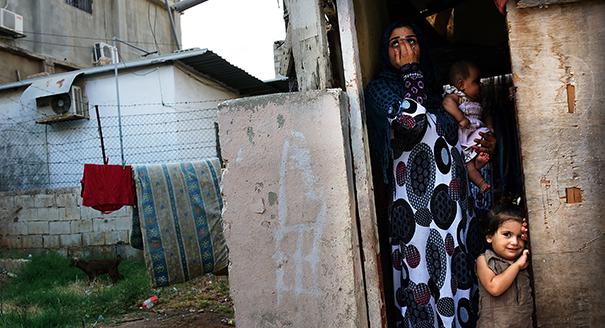In a recent visit to Syria, Lebanese caretaker social affairs minister, Ramzi Musharrafiyyeh, met with Syrian Foreign Minister Faisal Mekdad to discuss the return home of Syrian refugees in Lebanon. This is a priority for the Lebanese, at a time when their country is facing a major economic crisis. On July 14, 2020, the Lebanese government released a plan for the return of the refugees, while last November Russia hosted a conference on refugees in Damascus. Musharrafiyyeh’s visit has to be seen in light of both.
Lebanon is not a party to the 1951 Convention Relating to the Status of Refugees and government officials have preferred using the term nazihin, or “displaced persons,” rather than word “refugees” when discussing the Syrians. Since the outbreak of the Syrian conflict in 2011, the Lebanese government’s response to the refugee crisis has been shortsighted and there have been no attempts to formulate a unified national policy response to deal with it. In fact, Beirut adopted a “policy of no policy,” reflecting a governance style marked by apathy, weak institutions, and an evasion of responsibility.
Lebanon is the country hosting the largest number of Syrian refugees per capita, with more than 865,500 registered refugees at the end December 2020. Yet instead of developing a centralized policy framework, the Lebanese have sought to derive benefit from the refugee presence by soliciting European funding to address the problem, an approach known among scholars as “refugee rentierism.” This reflects a perennial attitude toward crisis management that favors dependency and reliance on outside actors.
It is no coincidence that Musharrafiyeh’s meeting in Damascus came ahead of the fifth Brussels Conference on Syria that will take place by the end of March. The European Union is a major aid donor to Lebanon on refugees, having provided more than €2.3 billion in assistance since 2011. With the Syrian and Lebanese pounds plummeting and the economic situation worsening in both countries, many people will view Musharrafiyeh’s visit to Damascus as collaboration with the Syrians to exert more pressure on the international community to provide funding, while also using the refugees’ return to remove international sanctions on Syria.
Not surprisingly, Lebanon’s central bank governor, Riad Salameh, has also sought to exploit outside funding for refugee assistance. In a recent letter to international donors, he requested that they restrict their interactions with commercial banks and transfer assistance funds solely to the central bank, which would distribute the money to refugees in Lebanese pounds, based on the official exchange rate. The pound is still officially pegged at LL1,500 = $1.00, whereas in the black market it has exceeded LL13,000 = $1.00, which means the central bank could make a big profit by distributing pounds at a highly overvalued rate. Despite the damaging impact of such a decision on refugees, observers have seen it as an effort by Salameh to build up the central bank’s foreign currency reserves.
Beyond that, the international community has been increasingly critical of the Lebanese government for its failure to address the economic crisis and the fact that its investigation into the explosion at Beirut Port last August remains in limbo. By shifting the focus back to refugees and humanitarian issues, the government is attempting to divert attention away from the failures of the Lebanese state. At a time when the regional and international mood is looking to put an end to the crisis in Syria, Syria and Lebanon are using refugees as levers to advance their financial and political agendas.
For the Assad regime, the return of refugees is seen as fundamental to signal the end of Syria’s conflict and normalize the country’s relations with surrounding host countries. Yet, a return of refugees must be voluntary and based on their free and informed assessment of the situation. In a Carnegie report published in April 2018, many refugees spoke of their willingness to return to Syria once a reconciliation and a political transition were achieved, and once they could be guaranteed of coming home safely and securely. However, the current situation does not meet these conditions. There is no political process in place in Syria and the Assad regime remains in power.
Due to instability in Syria and restrictions on movement imposed by the Covid-19 pandemic, the number of voluntary returns dwindled to a record low of 21,618 in 2020. Nor were the conditions reassuring. In the first nine months of 2020, the Syrian Network for Human Rights documented at least 62 arrests of refugees returning from Lebanon.
Therefore, much remains to be done to introduce a voluntary return program. Recent Lebanese efforts to secure a refugee return have also been based on a misreading of reality. First, a process of bringing refugees back is complicated and requires systematic planning. The Lebanese approach has lacked both internal and international coordination and cooperation. In fact, Musharrafiyyeh’s visits have not been organized with other ministries, nor have they been discussed with humanitarian actors, such as the United Nations High Commissioner for Refugees, to allow for a smooth repatriation process. Moreover, Lebanon has failed to adopt a systematic policy of identifying refugees, as not all were registered upon entering the country. That’s why it would be very challenging to organize and monitor a major refugee return under present conditions.
Second, the return strategies have not taken into consideration the Covid-19 pandemic and the deterioration of Syria’s economic situation. Both are likely to reduce the numbers of people willing to return voluntary. And third, the volatile political situation in Syria and the fear of arbitrary arrests and detention upon or after arrival will continue to severely limit the number of those going home.
The question of sending refugees back to Syria requires thorough consideration and cannot be addressed through occasional visits by Lebanese officials who failed initially to respond adequately to the Syrian crisis. The situation in Syria requires a unified international response to reach a political solution that would factor in humanitarian conditions that ensure the safe return of refugees.






